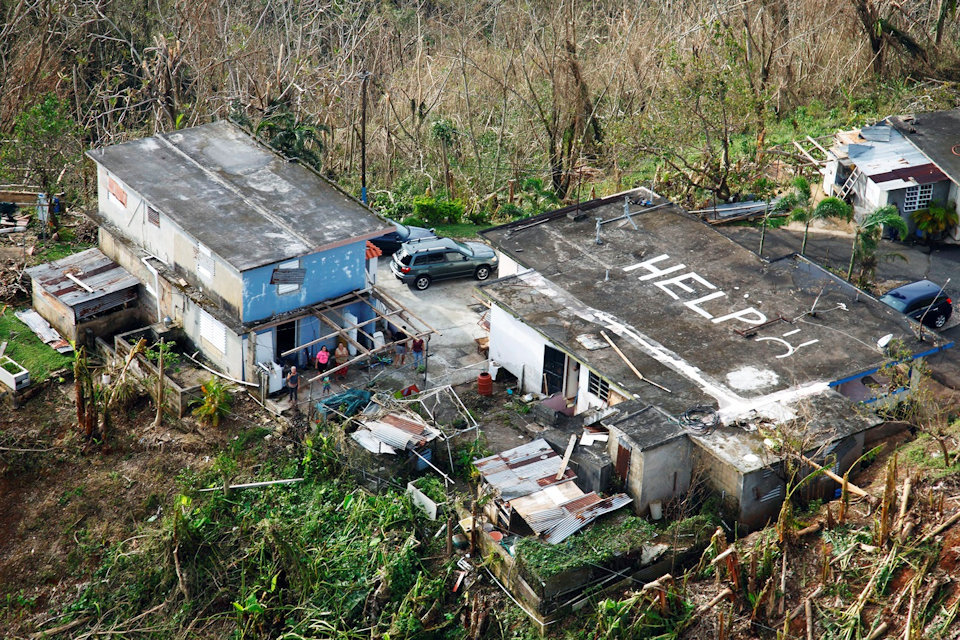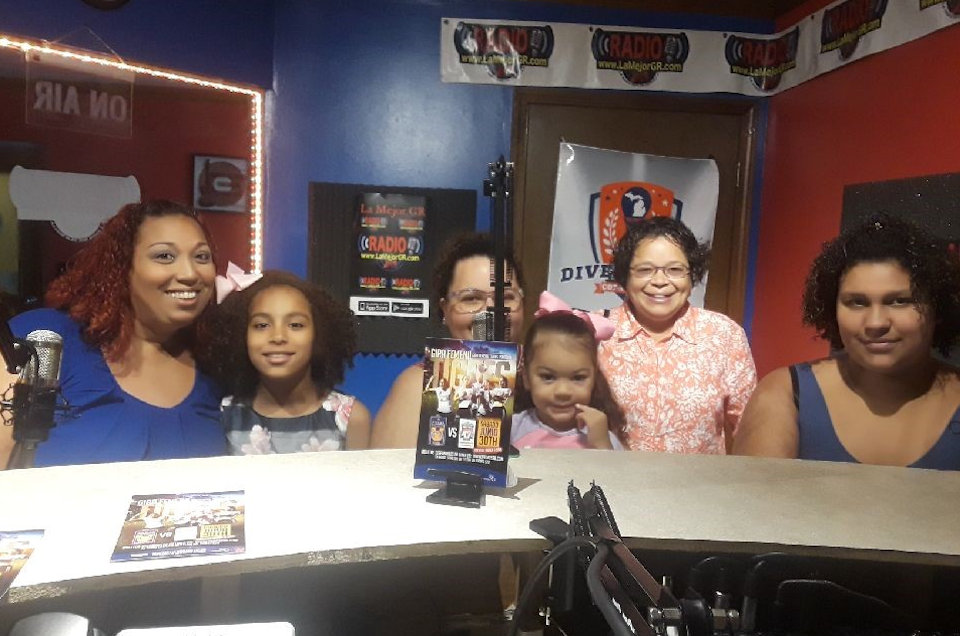Part 1 in a series, UMCOR in Michigan, features assistance being given to Puerto Ricans who relocated in Michigan after devastating 2017 hurricanes. A $100,000 UMCOR grant makes it possible.
KAY DEMOSS
Senior Content Editor
“People are starting here with nothing,” said Ruth Tobar. Ruth and her colleague, Guillermina Peguero, began work in Michigan in April as case managers for The United Methodist Committee on Relief. They are part of a six-month effort to support Puerto Ricans who were forced to leave their homeland after Hurricane Maria struck on September 20, 2017.
The Michigan Conference was asked by the United Methodist Committee on Relief (UMCOR) to consider providing disaster case management and the Michigan Conference Disaster Response Team stepped up. UMCOR provided a $100,000 grant that would pay the case managers as well as make direct assistance funds available for those they helped. The funds could be used for long-term recovery, either resettlement in Michigan or return to Puerto Rico.
Ruth and Guillermina received training from both FEMA and UMCOR. While the deadline for applying for FEMA assistance was in June, the case managers are helping some appeal to FEMA.
Ruth assists those on the west side of the state from her office in Grand Rapids; she shares space with Justice For Our Neighbors at Grand Rapids First United Methodist Church. Guillermina is based in Detroit at Central Familiar Cristiano United Methodist Church.
Their task is to identify persons in need of services and referrals. They also assess the needs of individuals and families and help them access resources for recovery and resettlement. Ruth and Guillermina also arrange for needed services. Guillermina sums it up, “Our job is for them to be safe and happy with a beautiful life here in Michigan.”
The first task was to find and establish relationships with displaced persons. Both Ruth and Guillermina put flyers in drugstores, laundromats, schools and supermarkets. Notices were placed in newspapers. Radio interviews were aired and tv spots were broadcast. They attended networking meetings.
Ruth explains that for many, “Things aren’t getting better in Puerto Rico.” She goes on to say that people’s flight to Michigan was typically not random. “Almost everyone we serve has a connection here, a sibling, a child, a friend, or a parent. They come here and stay with them.” But such arrangements are short-lived.

Guillermina is currently working with eight cases. She says, “I have one person who has nobody. Another has a daughter, but she lives in one room.”
Ruth is working with 12 families, the farthest residing in Battle Creek. “Early on we learned a recovery plan is very personal and individual,” she observes. “Every case is unique. These people are the owner of their recovery and we are there to help them.”
Once the Case Managers determine what’s needed, they engage in a weekly phone call with a “Funding Table” that includes members of the Michigan Conference Disaster Response team — Dan O’Malley, Rev. Robert Miller, and Rev. Paul Perez. Cases are evaluated and purchases approved in that setting.
“Some need clothes and food. Others we’ve given plane tickets,” Guillermina reports. Ruth lists buying and installing appliances, trips to the Secretary of State for a driver’s license, and helping children enroll in school among ways she has helped. “We’ve provided rent deposits, gone shopping because there was nothing in the pantry, gone after inoculation records from Puerto Rico,” Ruth adds. “There are some high- ticket items but then I may find a washer in a garage sale for $50.”
Ruth is happy to be “a person who listens to those who suffer from the trauma of the hurricane and its fallout.” While those they encounter experience culture shock, language and financial barriers, Ruth points out that “they come here with the advantage of citizenship.”
Her goal, once the project ends later this year, is to help person connect with the Puerto Rican community that has been in Grand Rapids since the 1950s. At the time of the 2010 Census, there were 37,267 Puerto-Rican Americans residing in Michigan.
The goal of the two women is to help 30 or 35 cases on each side of the state. “This is a very generous project,” Ruth notes, “and we know we can’t cover the whole island of Puerto Rico. But we want to make a difference for as many as we can.”
If you know of Puerto Ricans anywhere in Michigan who could benefit by the services of Mano a Mano, please refer them to:
East Michigan: Guillermina Peguero, Directora de Manejo de Caso / Disaster Case Manager 313-826-9969 / 313-829-9356; [email protected].
West Michigan: Ruth Tobar, Directora de Manejo de Caso / Disaster Case Manager 616-308-6483 / 616-451-2879 ext. 134; [email protected].
“This has been a teachable moment,” Ruth concludes. “A lot of these people did not know about The United Methodist Church. They have learned how generous and caring the United Methodist Church is and how UMCOR is an unsung hero … a quiet but very effective partner.”
Last Updated on September 20, 2022

